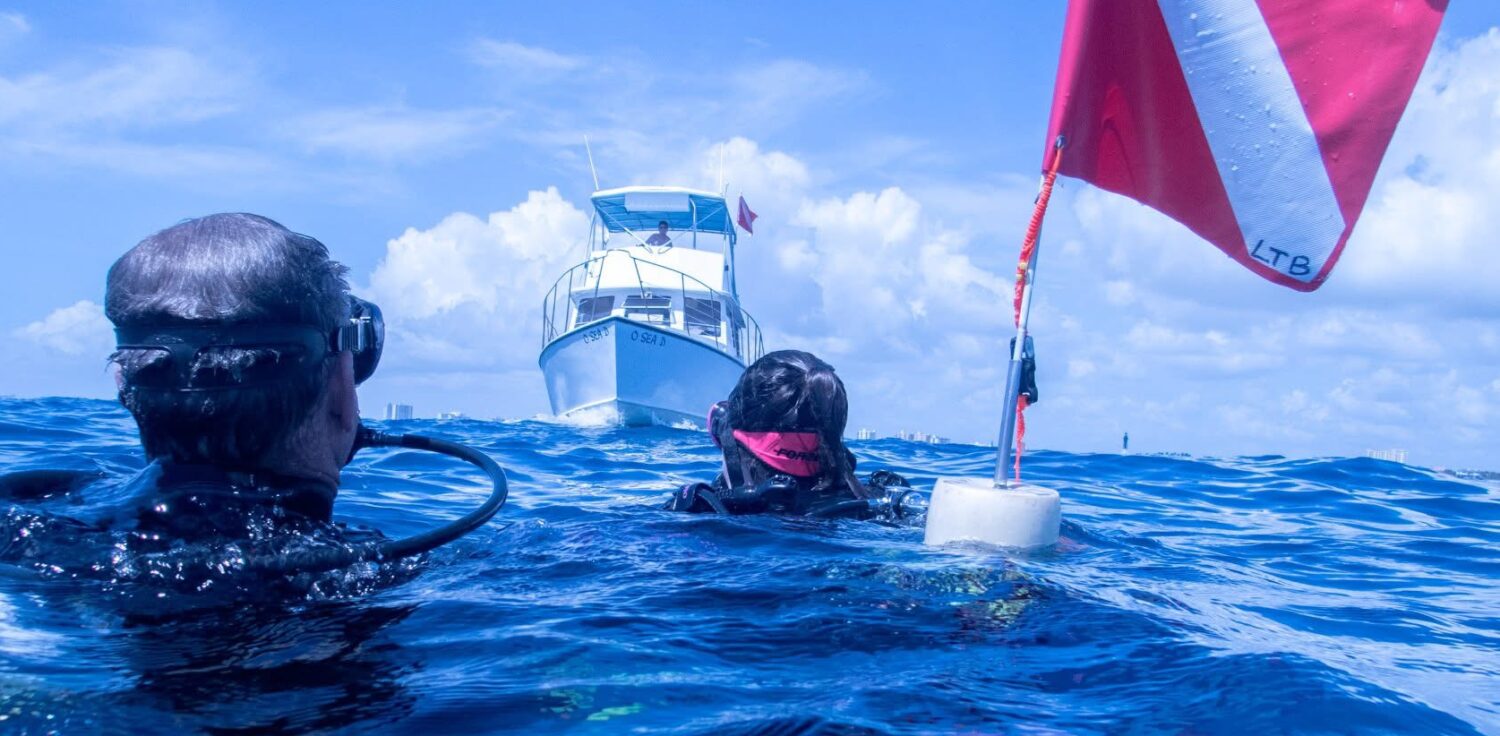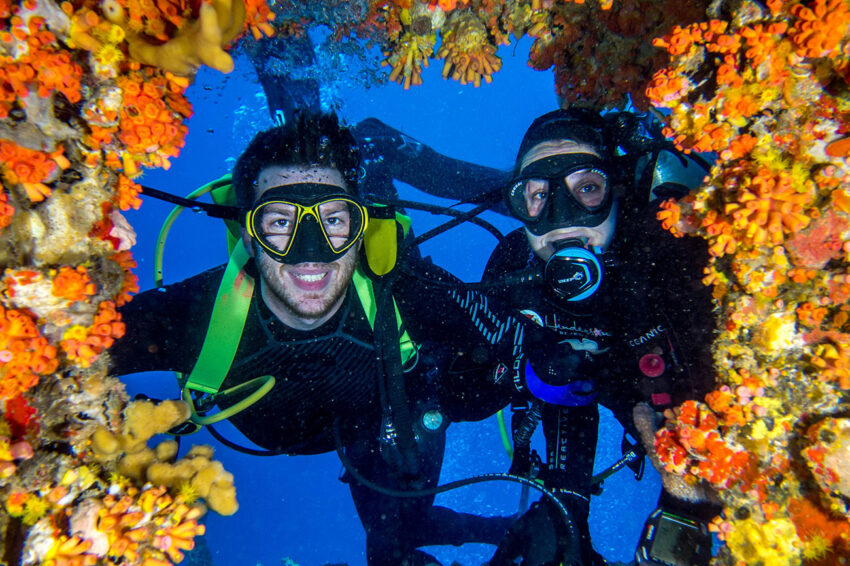Scuba diving is more than a sport—it’s a connection to an entirely different world beneath the waves. Whether you’re diving through vibrant coral reefs off the coast of Florida or exploring mysterious shipwrecks in the deep blue, your scuba gear is your life support system. Taking care of it after each dive trip is not just a matter of prolonging its life—it’s about safety, comfort, and ensuring that each future dive is as smooth and enjoyable as the last.
Whether you own your equipment or rely on scuba gear rental Florida, understanding proper post-dive care is essential. In this guide, we’ll walk you through the practical steps and best practices for maintaining your scuba gear after a dive trip, whether it’s a single day trip with one of the many Florida dive charter boats, or a weeklong dive safari.
Why Post-Dive Gear Maintenance Matters
Scuba gear is durable, but it operates in some of the harshest environments: saltwater, sand, sun, and pressure. Failing to properly clean and store your gear can lead to:
- Corrosion of metal components
- Degradation of rubber and silicone parts
- Bacterial and mold growth in wetsuits, BCD bladders, and masks
- Reduced gear reliability and lifespan
- Safety hazards during future dives
Good maintenance isn’t just about your gear—it’s about the safety of you and your dive buddies.
Step-by-Step Guide to Maintaining Scuba Gear After a Dive Trip
1. Rinse Everything in Fresh Water
The first and most important step is a thorough rinse in clean, fresh water. If you’re diving with Florida dive charter boats, most have rinse bins onboard. Use them right after your dive if available—but don’t stop there.
Why it matters: Salt crystals can corrode metal and stiffen soft materials. Sand can cause abrasion or block valves and mechanisms.
What to do:
- Use lukewarm, fresh water—not hot—to rinse.
- Remove all salt, sand, and debris.
- Soak gear (especially regulators, BCDs, and masks) for 20–30 minutes when you return home or to your hotel.
- Open and close buckles, purge valves, and inflators during the rinse to flush out saltwater.
2. Special Care for the Regulator
Your regulator is arguably the most vital piece of gear. Improper cleaning can lead to performance issues and costly repairs.
Steps:
- Replace the dust cap securely and rinse the entire first and second stages.
- Never press the purge button while rinsing unless it’s pressurized—it can let water into the hose and first stage.
- Use gentle movement and avoid submerging the first stage if the dust cap isn’t watertight.
- Let it soak (connected together) for 20–30 minutes, then rinse and dry.
Tip: Some dive shops that offer scuba gear rental in Florida also offer post-dive gear cleaning services if you’re traveling.
3. Flush the BCD Internally and Externally
Your Buoyancy Control Device (BCD) isn’t just for flotation—it also has internal bladders that come in contact with saltwater.
Steps:
- Fill the BCD bladder with fresh water through the oral inflator.
- Gently shake to rinse the internal bladder, then drain through all dump valves.
- Rinse the inflator mechanism and the exterior thoroughly.
- Inflate the BCD slightly before drying—it helps air circulate inside and prevents mold.
Safety tip: Regular cleaning of dump valves and inflator buttons prevents sticky or stuck components during your next dive.
4. Wetsuits, Boots, Gloves, and Hoods
These neoprene items are prone to bacterial buildup, especially in warm waters like Florida’s. Odors, discoloration, and stiffness can all result from poor cleaning.
Steps:
- Rinse thoroughly in fresh water, inside and out.
- Use wetsuit shampoo or mild soap to remove salt, body oils, and marine life residue.
- Hang on wide hangers out of direct sunlight—sunlight can degrade neoprene.
- Turn them inside out halfway through drying to ensure both sides dry evenly.
Humane tip: Never wring neoprene items; it can damage the material. Treat them gently—like you’d treat your own skin.
5. Fins, Masks, and Snorkels
These may seem low-maintenance, but they need love too.
Fins:
- Rinse thoroughly, especially the foot pockets.
- Check for cracks or worn straps.
- Store flat or hanging by the straps to prevent warping.
Masks:
- Rinse lenses and silicone skirts carefully.
- Avoid touching the inside of anti-fog coated lenses.
- Dry face-up on a towel, out of the sun.
Snorkels:
- Rinse thoroughly, especially the mouthpiece.
- Use a diluted vinegar solution if there’s any funky smell or mold.
Drying Your Gear: Air is Your Friend
Dry your gear in a well-ventilated, shaded area. Direct sunlight degrades rubber and plastic, so avoid leaving gear baking on the deck or balcony.
Key tips:
- Hang wetsuits and BCDs on thick, supportive hangers.
- Lay regulators flat in a cool place.
- Make sure everything is completely dry before storage to avoid mildew or mold.
Inspect and Store Properly
Once everything is clean and dry, take a few minutes to inspect your gear:
- Regulators: Look for cracks in hoses, loose connections, or corrosion.
- BCD: Check seams, straps, and inflator/dump valve function.
- Wetsuit/Boots: Check for tears or thinning spots.
- Mask/Fins: Look for cracks, bent frames, or degraded silicone.
Storage tips:
- Store in a cool, dry place away from chemicals or fumes.
- Avoid compressed storage (no folding regulators tightly).
- Use gear bags or plastic bins with ventilation.
- For long-term storage, lightly inflate your BCD and cover regulators with breathable bags.
A Note for Travelers Using Scuba Gear Rental in Florida
If you’re visiting the Sunshine State and relying on scuba gear rental in Florida, you’re in luck—many reputable dive shops maintain gear exceptionally well. However, it’s still wise to inspect rental gear before and after each dive. Here are a few things to do:
- Rinse your rental gear after each dive—even if staff says they’ll do it. It ensures your own safety and hygiene.
- Inform staff of any issues you notice—don’t ignore minor leaks or stiff inflators.
- Consider bringing personal gear like your own mask, snorkel, and computer for comfort and peace of mind.
Dive Charter Etiquette: Cleaning Up After a Day on the Boat
When diving with Florida dive charter boats, your interaction with gear care extends to the boat deck. Responsible divers not only take care of their own gear but also respect communal rinse bins, storage areas, and boat crew efforts.
Best practices:
- Rinse sandy gear off at the back of the boat, not near sensitive electronics.
- Use gear bins if provided; don’t sprawl gear across benches.
- Ask before using freshwater showers—some boats have limited supply.
- Tip your dive crew—they often help with gear handling, and a little appreciation goes a long way.
Regular Maintenance and Servicing
Even with diligent post-dive care, gear needs professional maintenance:
- Regulators: Service annually or every 100 dives.
- BCD: Service annually, including inflator and dump valves.
- Tanks: Visual inspection yearly, hydrostatic test every 5 years.
- Computers and Gauges: Replace batteries as needed and check O-rings.
If you’re a frequent visitor to Florida or dive regularly with local operations, consider developing a relationship with a trusted dive shop. Many offer gear servicing packages along with scuba gear rental in Florida, especially in popular diving hubs like Key Largo, West Palm Beach, and the Florida Keys.
Final Thoughts: Treat Your Gear Like a Dive Buddy
At the end of the day, scuba gear is more than equipment—it’s what enables you to explore the silent world beneath the waves. Giving it proper care after every dive is a small gesture of gratitude for all the memories it helps create.
Whether you’re gearing up for a wreck dive off a Florida dive charter boat or rinsing your mask in a beachfront shower, every step you take in maintenance is an investment in your safety, your wallet, and your next incredible underwater adventure.
So take a few extra minutes after your next dive trip. Breathe deeply. Rinse well. And let your gear rest as well as you do, knowing it’ll be ready to take you safely back beneath the surface when you’re ready to go again.
Author’s Note: If you’re just starting out or exploring new dive sites, look for shops that specialize in safe, high-quality scuba gear rental in Florida. Ask about how they maintain their equipment, and never hesitate to speak up if something doesn’t feel right. A good dive shop will appreciate your awareness—and your safety comes first.


